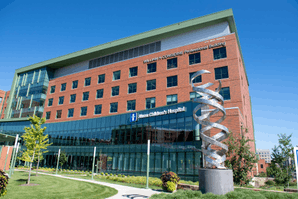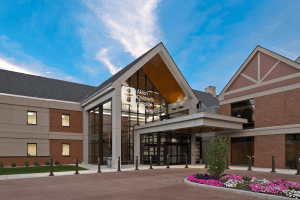Pediatric Arrhythmia Center

The Akron Children's Pediatric Arrhythmia Center is a pioneer in the treatment of abnormal heart rhythms. We were the first pediatric hospital in Ohio to offer cryoablation, which cures about 95% of tachycardias, and we are the first hospital in Ohio to offer cardioneuroablation (CNA), a catheter ablation procedure used to treat bradycardias. CNA is useful to treat patients with recurring syncope, as well as to treat some patients with pacemakers. Dr. John Clark, the director of our center, also helped develop a procedure to fix irregular heartbeats without using radiation. The Arrhythmia Center team is applying that same radiation-free expertise to CNA, completing most procedures with zero radiation exposure. Our goal is to find the most appropriate and least invasive option to treat your child.
Learn more...About Arrhythmia Center
Common or complex arrhythmias occur when the heart’s electrical system doesn’t function properly, or when there's an extra electrical connection or abnormal electrical focus in the heart.
We diagnose and treat the full range of abnormal heart rhythms, including:
- Bradycardia (slow heart rate)
- Heart block
- Heart palpitations
- Long QT syndrome
- Sudden cardiac arrest
- Supraventricular tachycardia (SVT), or rapid heart rate
Children may be born with a cardiac arrhythmia, or it may result from scar tissue formed after heart surgery for a congenital defect. Symptoms of arrhythmias include fatigue, dizziness, lightheadedness and fainting spells. Extremely rapid or slow heart rates can be life-threatening.
We use the most advanced testing and treatments to manage or cure abnormal heart rhythms in children and teens. Our goal is to find the most appropriate and least invasive option to treat your child. With the right care, children with arrhythmias can lead healthy lives.
Arrhythmia Center
Akron Children's Pediatric Arrhythmia CenterConsidine Professional Building
215 West Bowery Street
Level 5
Akron, Ohio 44308
Fax: 330-543-3850
Map & directions
More about this location...
Hours
Department: 330-543-8521
Cardiology, Boardman
Akron Children's Pediatric Cardiology, BoardmanLeonard J. Fisher Family Building
6505 Market Street, Building A
Boardman, Ohio 44512
Fax: 330-629-7620
Map & directions
More about this location...
Hours
Appointments: 330-543-2778
Department: 330-629-6085
Conditions and Treatments:
fatigue,dizziness,lightheadedness,heart palpitations,sudden cardiac arrest,supraventricular tachycardia,rapid heart rate,tachycardia, SVT, long qt syndrome, syncope, bradycardia, fainting, cardioneuroablation, cryoablation,





























